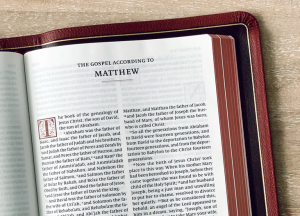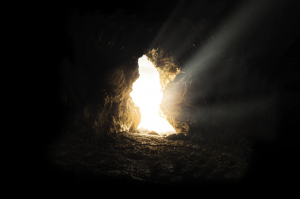
For over two millennia, those who believe that Yeshua fulfilled the Messianic prophecies of the Old Testament have been challenged in convincing religious Jews of the same. After many of the main prophecies are discussed and it seems clear Yeshua is indeed the Messiah, the listener often responds, “But what about this prophecy?” Trust me, it can be discouraging – especially when you don’t have all the answers.
We must study to know how Yeshua fulfilled the prophetic scriptures. Reading Bible-based, evangelical content from international media ministries like ours is an excellent first step. Again, we are honored to explain a few challenging Messianic prophecies to you so that you can better communicate with Jewish people who are religious and not convinced Yeshua is the Savior they’ve been waiting for.
God Wants the Whole World Saved
 We believe that the Gospel message that Yeshua is the Promised One prevails over any and all religious ignorance and misconceptions in Israel. This is why we continually reach out and share the truth about Yeshua with Israel, no matter how discouraging it gets.
We believe that the Gospel message that Yeshua is the Promised One prevails over any and all religious ignorance and misconceptions in Israel. This is why we continually reach out and share the truth about Yeshua with Israel, no matter how discouraging it gets.
We must remember that God wants the whole world saved, and Israel is part of that world. Paul was clear about God’s desire when he wrote to Timothy, “For this is good and acceptable in the sight of God our Savior, who desires all men to be saved and to come to the knowledge of the truth” (I Timothy 2:2).
Sure, there will be rejections, but those of us who believe need to have thick skin so that we can keep spreading the good news till the whole earth is filled with the knowledge of the glory of the Lord as the waters cover the sea (Habakkuk 2:14).
Now let’s consider some of the Messianic scriptures that may be tricky to defend.
The Messiah of Israel in the Prophetic Scriptures
The Messiah’s Ministry Will Be Peaceful (Isaiah 9:6-7)
 Isaiah the prophet gave specific qualities that Israel should expect of her Savior in his Messianic prophecies. However, regarding Matthew 10:35 and Luke 12:53, there is a common argument that Yeshua didn’t perfectly satisfy the “Prince of Peace” title given by Isaiah. And honestly, how could He be the Prince of Peace if people are still turning against one another?
Isaiah the prophet gave specific qualities that Israel should expect of her Savior in his Messianic prophecies. However, regarding Matthew 10:35 and Luke 12:53, there is a common argument that Yeshua didn’t perfectly satisfy the “Prince of Peace” title given by Isaiah. And honestly, how could He be the Prince of Peace if people are still turning against one another?
As we read the New Testament, we see that Yeshua never inspired or started any contention. His presence alone brought contention. And as He suffered rejection and persecution, He inferred that those who believed in Him would also be rejected and persecuted by those who didn’t believe. Paul affirmed the same truth in his second letter to Timothy when he said, “Yes, and all who desire to live godly in Christ Jesus will suffer persecution” (II Timothy 3:12).
He Won’t Raise His Voice (Isaiah 42:1-5)
 Israel expected a Messiah who would be calm and gentle in His approach. To a large extent, that’s justifiable with Isaiah 42:2: “He will not cry out, nor raise His voice, nor cause His voice to be heard in the street.” Somehow, that seems to contradict Yeshua’s reaction to finding the money changers in the Temple in Matthew 21:15-17, Mark 11:12-16, and Luke 19:45-48.
Israel expected a Messiah who would be calm and gentle in His approach. To a large extent, that’s justifiable with Isaiah 42:2: “He will not cry out, nor raise His voice, nor cause His voice to be heard in the street.” Somehow, that seems to contradict Yeshua’s reaction to finding the money changers in the Temple in Matthew 21:15-17, Mark 11:12-16, and Luke 19:45-48.
Let’s consider this: Could Yeshua be furious and still heal the people in the same instance? After driving out those who were selling, he began healing the sick.
Take time to read the preceding and succeeding verses again, and you will find that His tone wasn’t harsh; it was firm. All He did was correct how the religious leaders were using the temple.
He Will Reign as King (Psalm 2:6-7)
Arguably, this is one of the most quoted Messianic prophecies of all time. Of course, there is enough proof that Yeshua came from the Davidic family line, but there’s a common argument that David was speaking in this passage of his son, Solomon.
Let’s look at the preceding verses together. Psalm 2:1-2 describe a conspiracy against the Lord and His Anointed. This Messianic prophecy resonates with Isaiah’s prophecy in Isaiah 53:3, that the Messiah will be “despised and rejected by men.”
Really, if the Jewish people were looking for a passage that would more directly apply to Solomon, it would be 2 Samuel 7:12-16, which says that “He shall build a house for My name,” meaning Solomon’s Temple.
The Messiah Will Resurrect (Psalm 16:8-11)
 This prophecy speaks of the crux of the Gospel message, the resurrection of the Messiah. In this prophecy, King David added that His body wouldn’t know corruption, that is to say, the Messiah will rise bodily without decaying.
This prophecy speaks of the crux of the Gospel message, the resurrection of the Messiah. In this prophecy, King David added that His body wouldn’t know corruption, that is to say, the Messiah will rise bodily without decaying.
Here is Peter’s (named Shimon in Hebrew) interpretation of the prophecy: “He, foreseeing this, spoke concerning the resurrection of the Christ, that His soul was not left in Hades, nor did His flesh see corruption. This Jesus God has raised, of which we are all witnesses” (Acts 2:31-32).
Events After His Resurrection (Zechariah 12:10)
Zechariah’s prophecy is somewhat a two-in-one prophecy about the Messiah of Israel – the mourning of His death and the outpouring of the Spirit in relation to His suffering. Yeshua’s life fulfilled both. Fifty days after He resurrected, God poured out His Spirit as the prophet predicted (Acts 2).
Final Thoughts
As we have seen, the Messiahship of Yeshua is able to be received if it discussed by someone who has prayerfully and diligently endeavored to interpret the prophecies in Scripture about Israel’s Messiah with verifiable facts. If you find any prophecy challenging to comprehend, take time to really study the context. Reach out to us if you’re still confused! It’s likely we have an answer we can help you understand!

